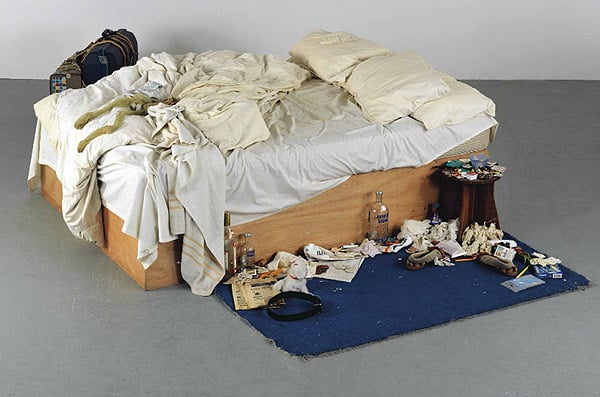People
Artist Tracey Emin Drops Efforts to Raze Historic London Building
A happy ending or admission of defeat?

A happy ending or admission of defeat?

Eileen Kinsella

Former bad girl YBA Tracey Emin has given up on plans to raze a building in East London that she had hoped to convert into a large home and studio space, according to a report in the Guardian. The structure is on the UK’s Statutory List of Buildings of Special Architectural or Historic Interest.
Conservation groups have praised the decision, according to the report. They “overwhelmingly” opposed her plans to knock down the 1920s building and construct a five-story David Chipperfield architects-designed house that would be connected to her studio.
The report says Tower Hamlets council rejected Emin’s application in April and that she filed an appeal, but subsequently withdrew it last week. artnet News reached out to Emin’s New York gallery, Lehmann Maupin, seeking comment but had not received a response as of publication time.
According to a council spokeswoman, Emin has not submitted an entirely new application, which would be the only way to continue pursuit of this redevelopment.
Conservation societies filed more than four-dozen objections to Emin’s plan with the council, with one calling the design “ugly, an eyesore and a triumph for money over the preservation of local history, style and local aesthetics.”

Tracey Emin, My Bed (1998). Courtesy of Tate.
For her part, Emin had argued that the plan was necessary in order to consolidate “her way of living and working into one entity.”
Emin rose to prominence in the 1990s as part of the famous stable of Young British Artists or YBAs that was heavily promoted by top collector Charles Saatchi. She became known for her stark, confessional artworks that explored her often troubled past and instances of assault and sexual abuse against her.
Her most famous work, My Bed (1998), is an installation that documented a point in the artist’s life in the aftermath of a breakdown. The work consisted of Emin’s own bed, along with empty alcohol bottles, cigarette buts, stained sheets, and soiled underwear, among other detritus. In 2014, the installation sold for $4.4 million (£2.5 million) at Christie’s London, the highest price ever achieved at auction for Emin. To date, more than three of her works have sold for over $1 million a piece at auction, according to the artnet Price Database.
Emin’s work is owned by a high-profile roster of celebrities and collectors, including Orlando Bloom and Kate Moss, as well as many collectors who appear on artnet News’ list of top collectors, including Anita Zabludowicz, Victor Pinchuk, Kent Logan, and the Rubell Family—and notables such as Elton John, George Michael, and Kenny Goss.
A group called “Save Britain’s Heritage” praised Emin’s move to withdraw her appeal. Director Henrietta Billings was quoted in a statement: “Great care was taken to design this delightful, modest building on Bell Lane to blend with the traditional scale of the narrow streets around it…. We are delighted that the building has been reprieved.”
Emin’s studio did not respond to the Guardian‘s request for comment.